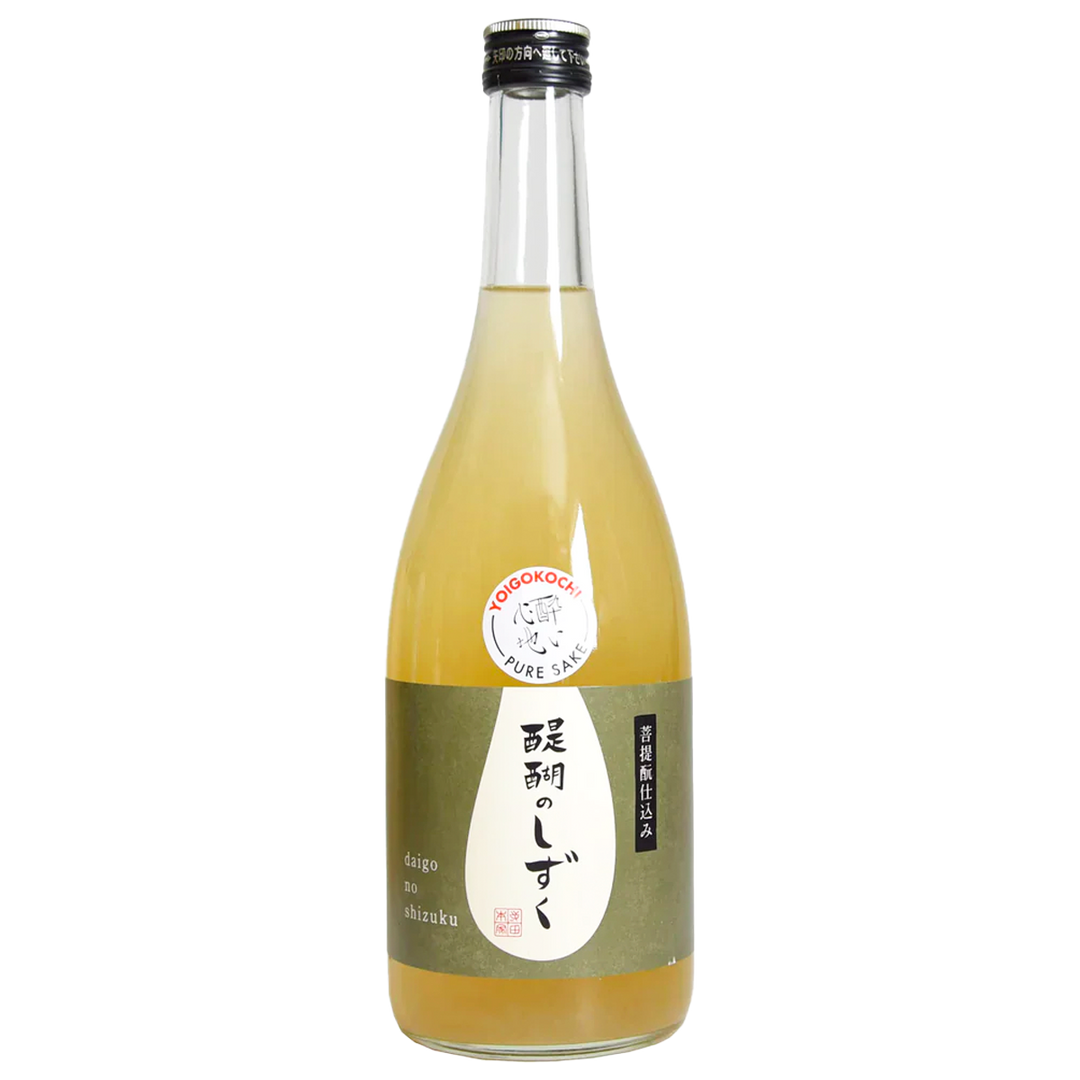
Terada Honke "Daigo no Shizuku" Bodaimoto (1/25 bottling)
- In stock, ready to ship
(1/25 bottling): this release has creamier, softer energy than some of the vinegary bodaimoto's of seasons past. Initially, I get aromatic alfonso mango, custardy papaya and creamy banana alongside a backbone of soft cheese. The palate drinks clear and clean-- less cidery and sharp, more like a coconut-inflected creamy tropical cocktail.
Daigo no Shizuku is sake as it was made in the 1400's. What we'd call kodaishu-- a reproduction of ancient brewing methods in the postmodern age-- it's barely recognizable as a rice-based drink, more closely resembling an off-dry perry or malvasia than any sake. Daigo no Shizuku is made from rice, water, and microorganisms alone, which makes all of its complexity that much more compelling.
To make the fermentation starter, a mash of cooked and raw rice and water is left to gather ambient lactic acid bacteria, creating soyashimizu: a sour water. This is the basis of the ambient fermentation that follows. As a fully ambient brew made with ancient methods, please treasure every meeting with this sake, for it will never taste the same again. And if you're feeling experimental, stash a bottle underground for a few decades-- you'll be happy you did.
Terada Honke, 寺田本家
9/2024 bottling
Location: Katori, Chiba Prefecture
Rice: Koshihikari
Polishing: 90%
Koji: 40%
Yeast: Ambient
ABV: 13%
Established in 1673, Terada Honke have been brewing continuously for over 345 years. They are purveyors of only natural yeast brewing, working almost exclusively with traditional Kimoto & Yamahai starter methods. This Daigo no Shizuku is a very unique Sake. It is produced using the Bodaimoto method, which is known as a ‘pre-modern’ method of creating Sake, first originating from a temple in Nara. The resultant Sake is wildly different from many, with a full body showing sweet fruit and a pickled ume & citrus character. It’s acidity is lively and refreshing.
*Bodai-moto is a starter method created by combining raw polished rice, a small amount of cooked rice and water and incubated for anywhere from three - ten days. During this time lactic bacteria falls into the mixture and the liquid becomes sour water. After this time frame the raw rice is taken away and steamed before being returning to the sour water. Then an addition of Koji rice is added (in Terada Honke’s case around 40% of the volume of raw rice). Then fermentation by natural yeast takes just two weeks. Then just a simply gentle pressing in a ‘Fune’ or horizontal press before being bottled.

